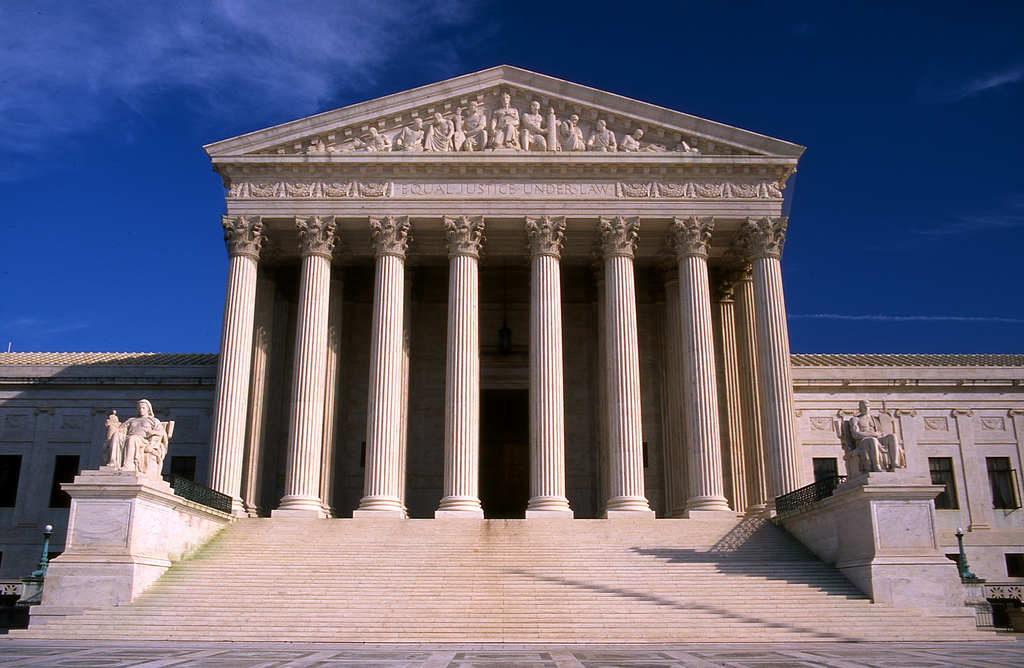WASHINGTON (June 21, 2023)—This Saturday, June 24, is the one-year anniversary of the U.S. Supreme Court’s decision in Dobbs v. Jackson Women's Health Organization, which ended the U.S. constitutional right to abortion.
George Washington University has experts available to comment on the legal, public health and medical consequences of the ruling. To schedule an interview contact GW Media at gwmedia gwu [dot] edu.
gwu [dot] edu.
Public Health
Sara Rosenbaum, is the Emeritus Professor of Health Policy and Management. She recently commented on the anniversary of the decision that, “the impact has been incalculable. It's like somebody dropped a nuclear bomb into public health…It’s as if [the Justices] didn’t understand all of what they would set in motion.”
Julia Strasser, is the executive director of the Jacobs Institute of Women's Health and an assistant research professor of health policy and management at the George Washington University Milken Institute School of Public Health. An expert on reproductive health and the abortion provider workforce, she commented on the long-term impact of the decision:
“The past year has seen exponential increases in barriers to accessing abortion, a time-sensitive and essential service. These barriers include travel distances of thousands of miles, long wait times for appointments, and higher costs. The Dobbs decision has not only magnified barriers to accessing abortion but also to other pregnancy-related care, such as management for miscarriages and ectopic pregnancies -- and other services like contraception and gender-affirming care are already under threat as well. The ripple effects of these restrictions also critically affect providers of this care, who are experiencing moral distress and moral injury.”
Amita N. Vyas is an associate professor at the GW School of Public Health and Director for the MPH Maternal and Child Health program and the Center of Excellence in Maternal and Child Health. She commented on the changes since the decision:
“In the year since the Dobbs decision, abortion has become unavailable in 14 states. It is imperative that we continue to examine and monitor the impact of these state level policies on low-income women, women of color, and adolescents as we know that the impact of abortion restrictions is unequal and these groups disproportionately experience adverse consequences. It is critical that we measure this impact with a health equity lens. In addition, we need to create more spaces and opportunities for women to share their stories as this not only deepens our understanding but it's also an effective advocacy tool.”
Nursing
Linda Cassar is a clinical associate professor at the GW School of Nursing, and has worked primarily with the maternal and child health patient population over her 30 years as a nurse, working in Labor and Delivery, Mother/Baby, High-Risk Antepartum, and Outpatient Community Perinatal Education. Cassar’s research includes evaluating nurses’ support for newly delivered breastfeeding mothers and factors that contribute to compassion fatigue in Labor and Delivery nurses.
Suzan Ulrich has been a midwife since 1983 and an educator of nurses and midwives for over 40 years. She serves as the program director for GW’s Nurse-Midwifery masters program. She can discuss the impact of the Dobbs division on midwifery care as well as topics relevant to the maternal mortality rate and maternal and child health in the U.S.
Sherrie Flynt Wallington, is an associate professor of nursing and health disparities researcher who teaches and conducts research on health communication, social determinants of health, and community-based participatory research strategies that focus on prevention, health disparities, and clinical trial recruitment and engagement. She is an expert on women’s health as well as maternal and child health.
Tarnisha Hemphill, an assistant professor of nursing, also works as a full-time, full-scope certified nurse-midwife in Baltimore City. Her area of expertise is promoting diversity and equity in health care and improving prenatal care access to underserved populations with health disparities. She can discuss the impact of the Dobbs decision on midwifery care.
Law
Alan Morrison, is the Lerner Family Associate Dean for Public Interest and Public Service Law. A Constitutional Law expert, he can comment on the legal reasoning in Dobbs v. Jackson Women’s Health Organization.
Politics
Casey Burgat is an assistant professor and director of the Legislative Affairs master’s program at the Graduate School of Political Management. He can comment on how members of Congress view the subject of abortion and the possibility of federal legislation that would liberalize or restrict reproductive rights.
Danny Hayes, professor of political science, can offer insight on how Americans view and prioritize abortion rights and how public opinion about abortion could factor into the 2024 elections.
Sara Matthiesen, an assistant professor of women’s, gender, and sexuality studies and history, is an expert on reproductive rights who can explore the significant impact the Dobbs decision continues to have on women across the country.
Melani McAlister, professor of American studies and international affairs, is an expert on the evangelical movement and can provide insight on the Religious Right’s decades-long campaign to dismantle abortion rights in the United States.


